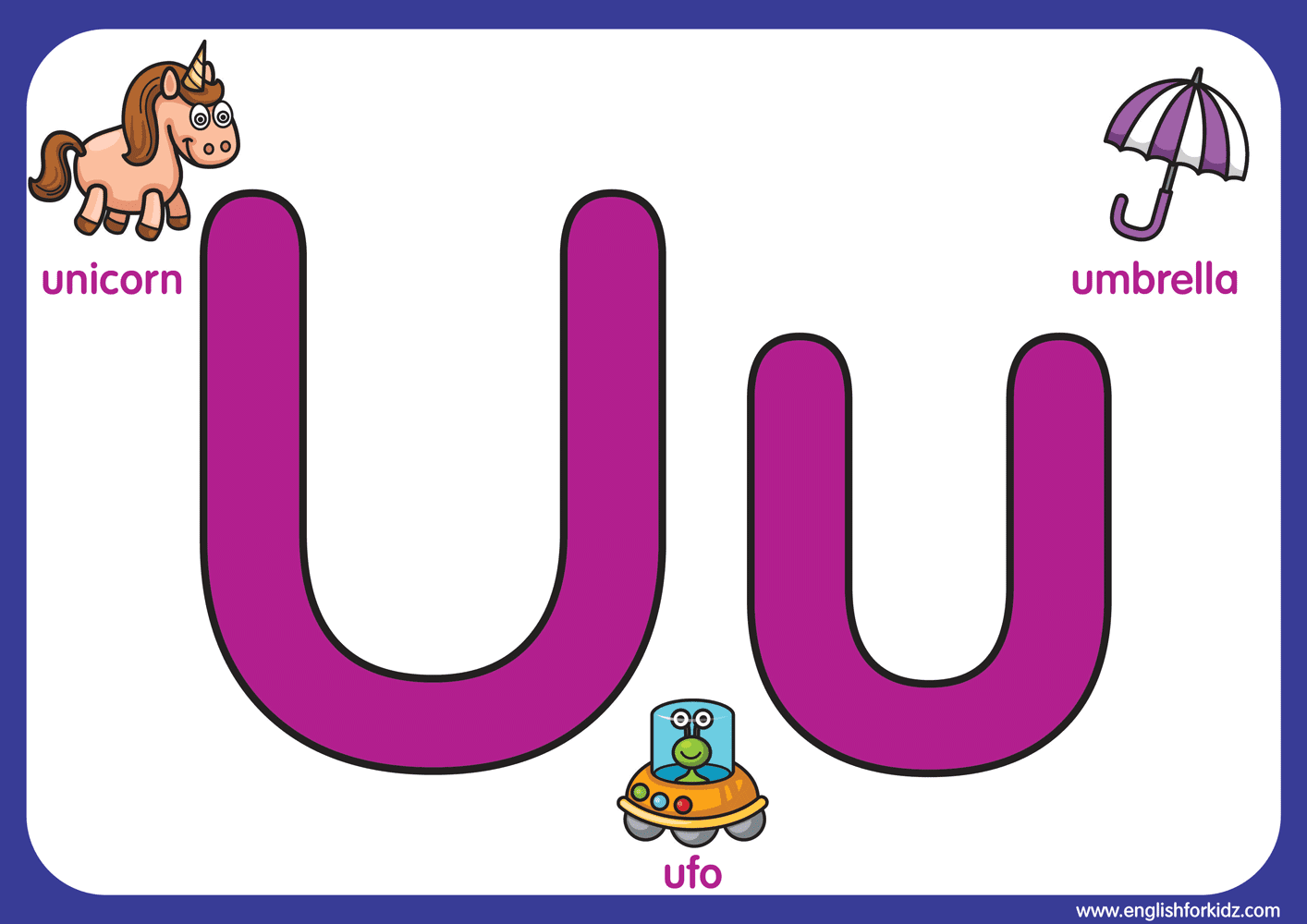The letter U is a crucial component of the English alphabet and serves various roles in language and communication. This article aims to delve into the significance of the letter U, its phonetic characteristics, and its usage in different contexts. Whether you are a language enthusiast, a student, or someone simply curious about the alphabet, this comprehensive guide will provide you with valuable insights into the letter U.
From its historical roots to its contemporary applications, understanding the letter U can enhance your language skills and deepen your appreciation for English. In this article, we will explore various aspects of the letter U, including its role in phonetics, its occurrence in different languages, and its significance in cultural contexts. Join us on this journey to uncover the multifaceted nature of the letter U!
As we examine the letter U, we will also consider its impact on communication, its representation in different fields, and its relevance in modern society. By the end of this article, you will have a comprehensive understanding of the letter U and its importance in our daily lives.
Table of Contents
- History of the Letter U
- Phonetics of U
- Usage of U in English
- Cultural Significance of U
- U in Different Languages
- Statistics on the Letter U
- Fun Facts About U
- Conclusion
1. History of the Letter U
The letter U has a rich history that dates back to ancient times. Its origins can be traced back to the Phoenician alphabet, where it was represented by the letter Waw, which symbolized a hook. Over time, this symbol evolved into the Greek letter Upsilon, which closely resembles the modern letter U we use today.
As the Latin alphabet was developed, the letter U was solidified in its current form. It has undergone various transformations through different languages and cultures, highlighting its adaptability and significance through the ages.
2. Phonetics of U
In phonetics, the letter U represents various sounds depending on its placement in a word and the surrounding letters. The most common pronunciations of U include:
- Short U: As in "cup" or "bus."
- Long U: As in "mute" or "blue."
- Diphthong U: As in "out" or "cloud."
Understanding these phonetic variations is essential for mastering pronunciation and enhancing communication skills in English.
3. Usage of U in English
The letter U is used extensively in the English language, playing a vital role in word formation and grammatical structures. Here are some key usages of U:
3.1 As a Vowel
U is one of the five primary vowels in English, often functioning as the nucleus of syllables. Its presence in words is crucial for creating meaningful expressions.
3.2 In Common Words
Some common words that prominently feature the letter U include:
- Under
- Use
- Unique
- Useful
4. Cultural Significance of U
The letter U holds various cultural significances across different societies. In the context of branding, the letter U is often used to convey messages of unity, understanding, and universal appeal. Many brands incorporate U into their names to symbolize their commitment to inclusivity and connection.
Additionally, in literature and art, the letter U has been used symbolically to represent concepts such as individuality and uniqueness.
5. U in Different Languages
The letter U is not exclusive to the English language; it appears in many other languages with varying pronunciations and meanings. For instance:
- In Spanish, U is pronounced similar to the English long U.
- In French, U has a distinct pronunciation that differs from its English counterpart.
Understanding how the letter U functions in different languages can enhance cross-cultural communication and language learning.
6. Statistics on the Letter U
Recent linguistic studies have analyzed the frequency of letters in written English. According to data from the Oxford English Dictionary, the letter U ranks as the 21st most frequently used letter in the English language, appearing in approximately 2.8% of all written text.
This statistical information highlights the importance of U in forming words and constructing sentences, showcasing its relevance in everyday communication.
7. Fun Facts About U
Here are some interesting facts about the letter U:
- The letter U is often associated with the concept of "you," highlighting its personal significance in communication.
- In the world of mathematics, U is commonly used to represent the union of sets.
- U is the only letter in the English language that is not used in the names of any of the planets in our solar system.
8. Conclusion
In conclusion, the letter U is much more than just a character in the alphabet; it is a vital component of language, culture, and communication. Its historical significance, phonetic variations, and cultural relevance make it an essential subject of study for language enthusiasts and learners alike.
We encourage you to explore more about the letter U and its impact on language. If you found this article informative, please leave a comment, share it with others, or check out our other articles for more insights!
Thank you for joining us on this exploration of the letter U. We hope to see you again for more engaging content!


